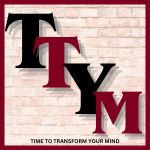12 Different Ways to Study The Bible
WITH PIERRE LAGUERRE, THE DAILY MOTIVATOR & SPIRITUAL MENTOR
12 Ways to Study the Bible
There are several well-known methods for studying the Bible, each with its own approach and focus. Here are some of the most commonly used methods:
1. **Verse-by-Verse Study:** In this method, you study the Bible one verse or passage at a time, examining its meaning, context, and relevance. This is a detailed and comprehensive approach.
2. **Topical Study:** Instead of studying a specific passage or book, you focus on a particular topic or theme found throughout the Bible. You gather relevant verses from different parts of the Scripture to gain a holistic understanding of that topic.
3. **Book Study:** Choose a specific book of the Bible and study it in-depth. This method involves reading the book from start to finish to understand its message, context, and purpose.
4. **Character Study:** Study the lives of biblical characters, such as Abraham, Moses, David, or Paul. Analyze their experiences, character traits, and the lessons that can be learned from their stories.
5. **Historical-Cultural Study:** Dive into the historical and cultural context of the Bible to better understand the customs, traditions, and historical events mentioned in the Scriptures. This method helps illuminate the meaning of certain passages.
6. **Word Study:** Focus on the meaning and significance of specific words or phrases in the Bible. Use concordances, lexicons, and dictionaries to explore the original Hebrew or Greek words and their implications.
7. **Devotional Study:** Read shorter passages or daily devotionals that provide a brief commentary and reflection on Scripture. This method is suitable for daily spiritual growth and meditation.
8. **Comparative Study:** Compare different translations of the Bible to gain a more comprehensive understanding of a passage. You can also compare parallel passages in the Old and New Testaments.
9. **Inductive Bible Study:** This method involves observing, interpreting, and applying the text. You ask questions, make observations, and draw conclusions based on the text’s content.
10. **Lectio Divina:** A contemplative approach to Bible study, where you read a passage multiple times, meditate on it, pray about it, and listen for God’s guidance and revelation.
11. **Journaling:** Keep a Bible journal where you write down your thoughts, reflections, prayers, and insights as you study. Journaling helps you process what you’ve learned.
12. **Group Bible Study:** Participate in a Bible study group, where you can discuss and share insights with others. Group discussions can provide diverse perspectives and deepen your understanding.
These methods can be used individually or in combination, depending on your goals and preferences. The key is to approach Bible study with a humble and open heart, seeking to understand and apply God’s Word in your life.
JOIN THE READING CHALLENGE TODAY!
BONUS
How to study the Bible effectively?
Studying the Bible effectively involves a thoughtful and systematic approach to gain a deeper understanding of its teachings. Here’s a good method you can use:
1. **Prayer:** Start your study with a prayer, asking for guidance and understanding from God. Seek the Holy Spirit’s illumination to help you comprehend the Scriptures.
2. **Choose a Passage or Topic:** Decide on a specific passage, chapter, or topic you want to study. You can select a book of the Bible, a particular story, or a theme that interests you.
3. **Read and Reflect:** Read the selected passage or chapters carefully. Take your time to understand the context, the people involved, and the message being conveyed. Reflect on what you’ve read and how it applies to your life.
4. **Use Study Tools:** Utilize study tools like a good study Bible, concordance, commentary, or online resources to help you delve deeper into the text. These resources can provide historical context, explanations of difficult passages, and insights from scholars.
5. **Take Notes:** Keep a journal or notebook to jot down your thoughts, questions, and key insights as you read. Write down verses that resonate with you or require further examination.
6. **Cross-Reference:** Explore related verses or passages that provide additional context or insights on the topic you’re studying. Cross-referencing can help you connect different parts of the Bible.
7. **Seek Understanding:** If you encounter challenging or unclear verses, seek understanding through prayer, meditation, and seeking counsel from knowledgeable individuals.
8. **Apply the Scriptures:** Consider how the lessons from your study can be applied to your life. Identify practical steps you can take to live out God’s teachings.
9. **Discussion and Sharing:** Discuss what you’ve learned with others, whether it’s friends, family, or a Bible study group. Sharing your insights and hearing different perspectives can enhance your understanding.
10. **Consistency:** Make Bible study a regular practice. Consistency is key to deepening your knowledge and relationship with God through His Word.
11. **Practical Application:** Apply what you’ve learned in your daily life. The Bible is not just for knowledge but for transformation.
12. **Teaching and Sharing:** Teach others what you’ve learned. Teaching can reinforce your understanding and help others grow in their faith.
Remember that Bible study is a lifelong journey, and there is always more to learn. Approach it with an open heart and a willingness to grow spiritually, and you’ll find it to be a rewarding and transformative experience.
https://youtu.be/wJ-4PafMBbc
START YOUR OWN CHALLENGE TODAY!
